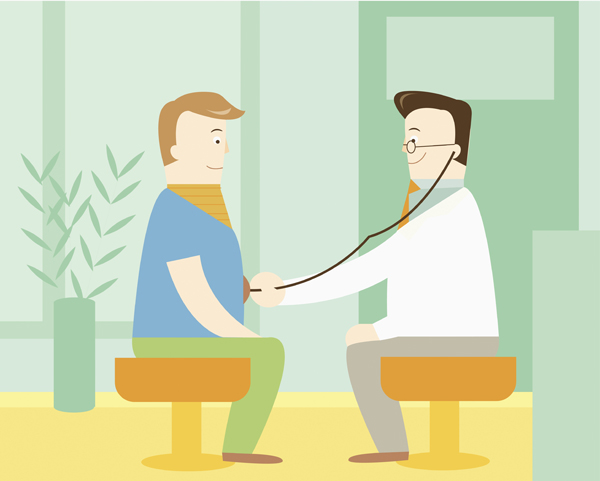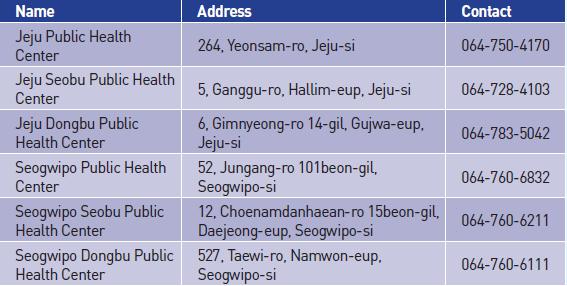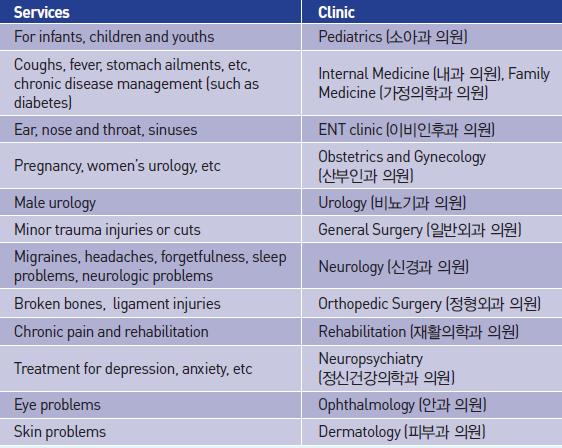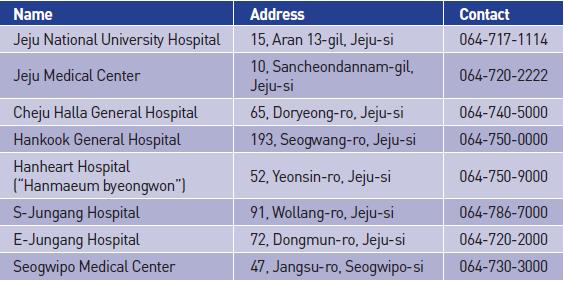|
The author is a qualified doctor currently residing on Jeju Island.
Health is invaluable to us all, so unfamiliar healthcare systems can be very stressful, even for doctors — as I found out while abroad. Despite differences, however, most medical systems around the world have features in common. This guide is thus intended to help members of Jeju's international community understand Korean healthcare so visiting the doctor is as stress-free as possible.
Cultural differences
Although Korean doctors do not always fully explain ailments or treatments to patients, Korean medical culture is changing. In 2010 the Korean Medical Licensing Exam began evaluating prospective doctors’ interpersonal skills through mock patient consultations, a welcome move according to doctors.
In addition to cultural misunderstandings, on Jeju in particular another big problem is likely to be communication, as few doctors (confidently) speak English, while even fewer foreigners can speak Korean. This makes understanding the system even more important.
Which clinic?
In Korea there are no family doctors or set appointment procedures — patients are free to turn up at any clinic, anywhere, at any time. This is really convenient as you can see a doctor when you want, where you want, without needing to book or wait (except for occasional queues).
However, from a non-Korean speaker’s perspective, this can cause confusion. Without the family doctor, known as a General Practitioner in some countries, patients have to choose from among a multitude of clinics, each with different specializations.
Primary, secondary and tertiary
Korean medical services are split into three levels — primary, secondary and tertiary. Your first point of contact will be at the primary level and anyone needing secondary or tertiary care is recommended to receive a Medical Treatment Request from a primary care provider; without this form patients cannot receive full insurance coverage in tertiary hospitals.
Primary care
Primary care is what is often called “doctor’s office” in the US or “surgery” in the UK, although Koreans might refer to this as “hospital,” leading to confusion for new arrivals. This is where you go for your diagnosis, although some centers have limited inpatient services (up to 30 beds).
There are both public and private primary care centers, with the private clinics being the specialized doctors you can see on every street corner. The Public Health Centers are not so common, and provide more general, limited care.
Public Health Centers
Owing to the plethora of clinics to choose from (see below), a Public Health Center (“Bogeonso”) is recommended if you are not sure where to go. There are six of these throughout the island in major population centers as well as 10 smaller “Bogeonjiso” (Public Health Sub-centers) located in more rural areas.
Public Health Centers are commonly used for immunization programs and chronic disease management, and provide all primary care services except obstetrics and gynecology, neuropsychiatry, and surgical care. Here you can expect the lowest consultation fees among all medical care providers, just 500 won per diagnosis (with insurance) compared to around 3,000 won at private clinics. If a prescription is not needed, the visit is free.
List of Public Health Centers (“Bogeonso”) (See map here for locations)
* All centers are open 9 a.m. to 6 p.m. from Monday to Friday, and 9 a.m. to 12 p.m. on Saturdays.
Private Clinics
Private clinics specialize in particular areas of medical care such as internal medicine, ENT or orthopaedics, meaning you need to know where to go. There are 23 medical specialties in Korea, 15 of which operate as primary care centers.
Where do you go for what?
Secondary care
Secondary care institutions, such as General Hospitals (“Jonghab Byeongwon”), provide medical care for extreme and acute cases needing surgical or highly specialized care. These centers provide inpatient and outpatient care, with between 30 and 500 beds.
There are, however, some primary care centers within General Hospitals such as Emergency Medical Care (“Eunggeub Euihakgwa” or Casualty/ER) and Family Medical Offices (“Gajeong Euihakgwa”).
* It is recommended a Medical Treatment Request (“Jinryoeuiroeseo”) is rereceived from a primary care provider before using a secondary care center.
List of General Hospitals (See map here for locations)
* Opening hours depend on the department, but most are open 9 a.m. to 6 p.m. with the emergency services operating 24 hours a day.
Tertiary care
Unfortunately, Jeju has no tertiary hospitals, although there are many secondary hospitals with advanced facilities, and there is one teaching hospital. You will likely only need tertiary care treatment in cases such as state-of-the-art surgery, transplants, elective heart surgery, etc.
This guide is continued online with an introduction to the Korean health insurance system. Visit Community>Guide for Expats at jejuweekly.com
Fees and insurance
As a rule, medical fees tend to increase with hospital level, so if you think your problem can be treated at the primary care level, particularly at a Public Health Center, then go there. This would include common colds or gastroenteritis, for example. If you need further treatment you will receive a Medical Treatment Request for secondary care.
Health insurance system in Korea
Everyone working in Korea should pay into the National Health Insurance Service (NHIS) and thus be covered by state medical insurance. This includes the employed and the self-employed, in addition to all dependents of these groups.
According to the legislature, 5.99 percent of personal income in 2014 should be paid to NHIS; however, while half of this comes directly out of employee’s paychecks, the other half is paid by the employer, making the effective payment 2.995 percent.
The self-employed or dependents should be registered for “Local Medical Insurance” at a local NHIS branch. In this case, the insurance fee depends on ‘Insurance Imposing Credits’ based on personal income, assets, cars, and standard of living, For each “credit,” 175.6 won should be paid.
| |
 |
|
| ▲ Image courtesy Brandon Oh |
How much is covered?
Health insurance covers 70 percent of outpatient consultation costs at primary care clinics, 50~65 percent at secondary centers, and 40 percent at tertiary centers. Insurance also covers 70 percent of prescription costs for medicines at the pharmacy. On the other hand, at all care levels 80 percent of inpatient costs are covered.
Patients should be aware that there is a price ceiling on how much of the medical costs they should pay depending on their income. In cases of overpayment, refunds are made through the year-end tax adjustment.
Your insurance also covers a general health checkup; for office workers, this is covered every other year, while for other professions, it is an annually covered service. If in doubt, check with your employer.
Health insurance for expats
Expats employed by a company needn’t worry as your health insurance should be handled the same as that for Korean citizens, with the insurance premium being automatically deducted from the monthly income.
The self-employed and certain other visa holders without full employment, including students, must attain “Local Medical Insurance” and take their Alien Registration Card and passport to the local NHIS office. The insurance is paid every three months and the coverage is the same as that outlined for employed Korean citizens.
Local NHIS branches
Jeju branch: 24, Doryeong-ro, Jeju-si
Seogwipo branch: 38, Sinseogwi-ro 51beon-gil, Seogwipo-si |
























